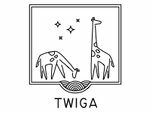Driven by an expanding population following rapid urbanization, global waste generation is growing at a fast pace with plastic waste being a problematic aspect. The growing use of plastic as an essential resource has caused many environmental problems. Not only are the seas being contaminated, but cities are also facing big problems.
In the city of Kumasi, Ghana, (plastic) waste is causing drains to clog, creating floods when heavy rainfall has fallen. These floods happen in a rush and can happen up to 12 times a year in some places. People are often unprepared and a lot of properties get lost. When the flood water recedes, still standing water remains, creating breeding places for (malaria inducing) mosquitos and bacteria.
Improper waste disposal is also causing other problems, like having a negative impact on the scenery, the regular burning of waste causing carcinogens and other toxins to be released into the air and other general health hazards. These problems have been noticed by the partners of TWIGA, they aim to develop a service that could provide data to prevent floodings or improve the management of (plastic) waste.
One of their ideas was established during a Hackathon that took place in Kumasi from the 19th until the 23rd of November. During this Hackathon, Professor van de Giesen and Rick Hagenaars have developed a multi-spectrum sensor that can detect plastic and measure water levels. This could predict floods caused by plastic and other waste clogging in drains (TAHMO hackathon, 2018). The plastic and other waste clogging the drains have to be picked up in time however to prevent the flooding or reduce the consequences of flooding. This plastic pick up could then be linked to a plastic recycling company, for which government subsidizing would be essential.
As students from the Technological University of Delft, we (Anne Schermerhorn, Roxanna Vafa and Rosalie Middendorp) set out to research whether this plastic detection sensor could be developed into a viable service within the TWIGA framework. Within this research, other possible services and solutions were also taken into account. The research was conducted by; doing surveys in areas where flooding take place; interviews with experts and stakeholders and case studies with existing literature.
From this research, some conclusions can be drawn. The plastic detection sensor, while being very feasible to implement, might not have the intended results. The result might even be counterproductive, when you start taking waste away, people will start littering there even more. The areas that face flooding are the most impecunious, where people will take any chance to save some pennies. Normally they have to pay to dispose of their waste, but when it gets taken out of rivers for free, they will just start dumping it there more. As a Dutch pronoun would say ‘dweilen met de kraan open’.
The real source of the problem that needs to be tackled is the illegal littering itself.
The essentials are based on education, awareness programs and general improvements on laws and regulations and their enforcement regarding dumping and waste burning. The national government and the Kumasi Metropolitan Assembly play big roles in facilitating this process.
One of the aspects of flooding that TWIGA could set their focus is on creating an early warning based system for flooding. Many victims from floodings mentioned that they were unprepared and now have to sleep on the floor because their mattresses and other essentials are ruined in floods for which they are unprepared. This won’t prevent the floodings themselves, but it will create a system that will prevent citizens from losing exorbitant amounts of property, as these floods often happen in a rush. This system could be linked with services that other partners from TWIGA already offer, like Farmerline’s voice messages. Citizens would be able to subscribe and get alerting messages when there is a high flood risk.
The full research report is available upon request.
Written by:
Roxanna Vafa, Rosalie Middendorp, Anne Schermerhorn

